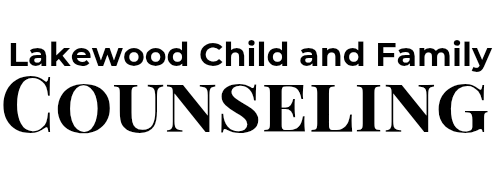Starting Therapy in Spokane Washington – Healing Together
Families face various challenges that can affect their relationships and emotional well-being. Therapy for a family can look different than you’d expect. Often, starting with one family member at a time. This allows the therapist the opportunity to hear you and provide a structured approach to addressing the conflicts, improving communication, and supporting mental health.
Lakewood Child and Family Counseling offers therapy services in Washington that support family work, through structured and professional planning. Therapy sessions focus on identifying individual concerns, setting goals, and implementing strategies to improve relationships. Once everyone has been heard individually then overall family well-being improves.
Understanding Therapy
What is family therapy, and how does it work?
Family therapy is a targeted counseling approach designed to enhance communication, resolve conflicts, and strengthen relationships within the family. It helps address challenges such as behavioral issues, emotional difficulties, and major life changes that affect the family dynamic. It is not, every family member in the the therapist’s office all at once. That would recreate the same situation you have at home.
Fostering healthy relationships
Counseling for a family helps each member understand one another, build trust, and develop effective coping mechanisms. A licensed therapist guides sessions and facilitates problem-solving, and provides tools to manage stress at home, disagreements, and emotional challenges.
How therapy helps families navigate life’s challenges
Many families encounter difficulties that strain their relationships. Often between the interactions between subgroups – between parent and kids, for example. Therapy offers structured guidance to address these concerns. First individually, then between the subgroups, then if still needed- among the entire family system. Whether dealing with divorce, grief, parenting conflicts, or mental health issues. Families can develop healthier communication patterns, resolve disputes, and work toward long-term emotional stability by participating in sessions.
Key Benefits of Therapy
Improving communication and conflict resolution
Effective communication is essential for maintaining healthy family relationships. Therapy helps individuals express their thoughts and emotions clearly, practicing one-on-one with the therapist. Then learning to listen and understand others. Therapists guide you in resolving conflicts constructively and developing skills to prevent future misunderstandings.
Strengthening emotional connections
Counseling fosters stronger emotional bonds by encouraging open discussions and mutual understanding. Therapy provides a safe environment where family members can share their feelings, work through past conflicts, and rebuild trust. Strengthening these connections can lead to a more supportive and cohesive family unit.
Supporting major life transitions and changes
Significant life changes, such as moving, job loss, divorce, or childbirth, can cause stress within a family. Family therapy helps individuals adapt to these transitions by providing coping strategies and emotional support. Counseling sessions guide family members in adjusting to new circumstances while maintaining healthy relationships.
Addressing mental health concerns that impact the family dynamic
Mental health challenges, including anxiety, depression, and behavioral disorders, can affect the entire family. Family systems therapy provides support for both individuals experiencing mental health conditions and their loved ones. Therapists help families understand these conditions, develop coping strategies, and create a supportive home environment.
Common Challenges Addressed in Therapy Tacoma Spokane
Parent-child relationship difficulties
Parenting challenges, differences in discipline styles, and generational gaps can lead to misunderstandings and tension between parents and children. Therapy helps improve communication, establish boundaries, and foster a positive parent-child relationship.
Sibling rivalry and family conflicts
Sibling conflicts are common and can escalate without proper resolution strategies. Therapy sessions provide a neutral space to express their concerns, understand each other’s perspectives, and develop conflict-resolution skills.
Divorce, separation, and blended family adjustments
Family transitions, such as divorce or remarriage, can be stressful for all family members. Therapy helps navigate changes, process emotions, and establish healthy co-parenting or stepfamily dynamics.
Grief and loss counseling
Losing a loved one can profoundly affect a family’s emotional well-being. Grief counseling provides a supportive environment for individual family members to process their loss, express emotions, and find ways to heal together.
Managing stress, anxiety, and behavioral concerns in children and teens
Children and adolescents often struggle with stress, anxiety, or behavioral issues that affect the family. Family systems therapy addresses these concerns by helping parents and children develop strategies for managing emotions, improving behavior, and fostering a supportive home environment.
Addressing mental health conditions affecting the family unit
Mental health disorders such as depression, PTSD, and mood disorders can impact the entire family. Therapy helps families understand these conditions, learn effective coping strategies, and emotionally support affected members.
Conditions Treated in Systems Counseling
Therapy addresses a wide range of emotional, behavioral, and mental health challenges that affect individuals and their relationships. At Lakewood Child and Family Counseling, Tacoma & Spokane therapists provide professional support for the following conditions and more:
- Adjustment Counseling – Helping families navigate significant life changes and transitions.
- ADHD Therapy – Supporting children and adults with attention and behavioral challenges.
- Anxiety Treatment – Teaching coping strategies to manage stress and anxious thoughts.
- Behavioral Therapy – Addressing disruptive behaviors in children and teens.
- Depression Treatment – Providing support for individuals struggling with mood disorders.
- Personal Growth & Well-Being – Encouraging self-improvement and emotional resilience.
- PTSD Therapy – Assisting individuals and families affected by past trauma.
- Pregnancy, Postpartum, and New Child Support – Helping parents adjust to pregnancy and early parenthood.
- Emotional Regulation – Teaching techniques to manage strong emotions effectively.
- Suicidal Thoughts – Offering crisis intervention and emotional support.
- Geriatric Support – Addressing emotional and psychological concerns in aging family members.
- Sleep & Insomnia Issues – Helping individuals and families develop healthy sleep habits.
- Grief Counseling – Supporting families in coping with loss and bereavement.
- Life Transitions Guidance – Assisting with changes such as relocation, job loss, or relationship shifts.
- Stress Management Strategies – Teaching methods to reduce and cope with daily stressors.
- Mindfulness Skills Training – Promoting relaxation techniques for mental well-being.
- Mood Disorders Treatment – Addressing emotional regulation and stability.
- Thinking Disorders Support – Providing therapy for cognitive and perceptual challenges.
- Spirituality and Mental Well-being – Exploring personal beliefs about emotional health.
- Trauma Therapy – Helping individuals and families recover from past traumatic experiences.
Therapists work with families to create personalized treatment plans based on their specific needs, ensuring that each family receives individual effective and compassionate care.
What to Expect in Therapy Sessions
How sessions are structured and tailored
A licensed therapist conducts an initial assessment with each family member individually. To understand family dynamics, concerns, and goals. Based on this assessment, a structured plan is developed to guide future sessions and who is in which sessions.
The therapist’s role in guiding meaningful discussions
A therapist helps family members express their thoughts and emotions constructively. Sessions focus on improving communication, resolving conflicts, and fostering mutual understanding. The therapist provides tools and techniques to strengthen relationships and support long-term well-being.
Ensuring confidentiality and a safe space
Therapy sessions are conducted in a confidential and supportive environment where you can feel heard and respected. The therapist ensures productive non judgment session time.
Therapy Approaches Used in Counseling
Therapy incorporates evidence-based approaches to address various emotional and relational challenges. At Lakewood Child and Family Counseling, therapists use the following therapeutic methods to support families:
Family Systems Therapy
This approach views the family as an interconnected unit. It focuses on identifying patterns of behavior that contribute to conflict and helping families develop healthier interactions. This therapy promotes long-term relationship improvements by addressing the system as a whole through it’s individual parts until enough ground work has been laid for family work to begin.
Cognitive Behavioral Therapy (CBT) for Families
CBT helps individuals and families recognize negative thought patterns that contribute to emotional distress. It can improve communication, problem-solving, and emotional regulation by learning coping skills and reframing unhelpful thoughts.
Emotionally Focused Family Therapy (EFFT)
EFFT is designed to strengthen emotional bonds between family members. This therapy helps individuals understand and express emotions constructively while fostering deeper connections and trust.
Narrative Therapy
This approach encourages family members to reframe personal stories and experiences. By exploring their narratives, individuals gain insight into their challenges and develop new perspectives that promote healing and personal growth.
Solution-Focused Therapy
Solution-focused therapy emphasizes identifying and building on strengths rather than focusing solely on problems. It helps families develop practical solutions and set achievable goals for improving relationships and emotional well-being.
Each therapy method is tailored to the family’s needs, ensuring a customized approach that best supports their healing and growth.
How to Get Started with Therapy Today
Scheduling an initial visit
Families interested in therapy can schedule a consultation for 1 family member initially. In order to discuss their concerns and explore treatment options. During this session, the therapist will assess the family’s needs and recommend an appropriate approach to counseling.
Online therapy
Lakewood Child and Family Counseling offers online therapy sessions for individuals across Washington. This allows for no traffic and improved flexibility in schedules and preferences. From work- Lunch break sessions are great! Or from the comfort of home before work or anytime.
Insurance coverage and payment options
Insurance plans may cover therapy services, and affordable payment options are available. We are a therapist that accepts Regence Premera insurance in spokane and Tacoma, plus many more plans and locations.
Begin Your Healing Journey Today
Therapy provides the support and guidance needed to navigate challenges and strengthen your relationships. Whether dealing with communication difficulties, behavioral concerns, or significant life transitions, professional counseling can help you build a healthier future.
To learn more or schedule, contact Lakewood Child and Family Counseling today at 253-617-3559.
Experienced Therapists Available to Help YOU!
Don't let our name trick you, we provide Therapy in Tacoma & Spokane for adults too. We've been providing therapy and counseling services for almost 20 years now. We counsel mainly adults living in Washington State. We are also a therapist that accepts Regence Insurance in Spokane, Tacoma, Redmond, Yakima, Spokane, Olympia & Beyond.
Therapists available
Years in Business
%



